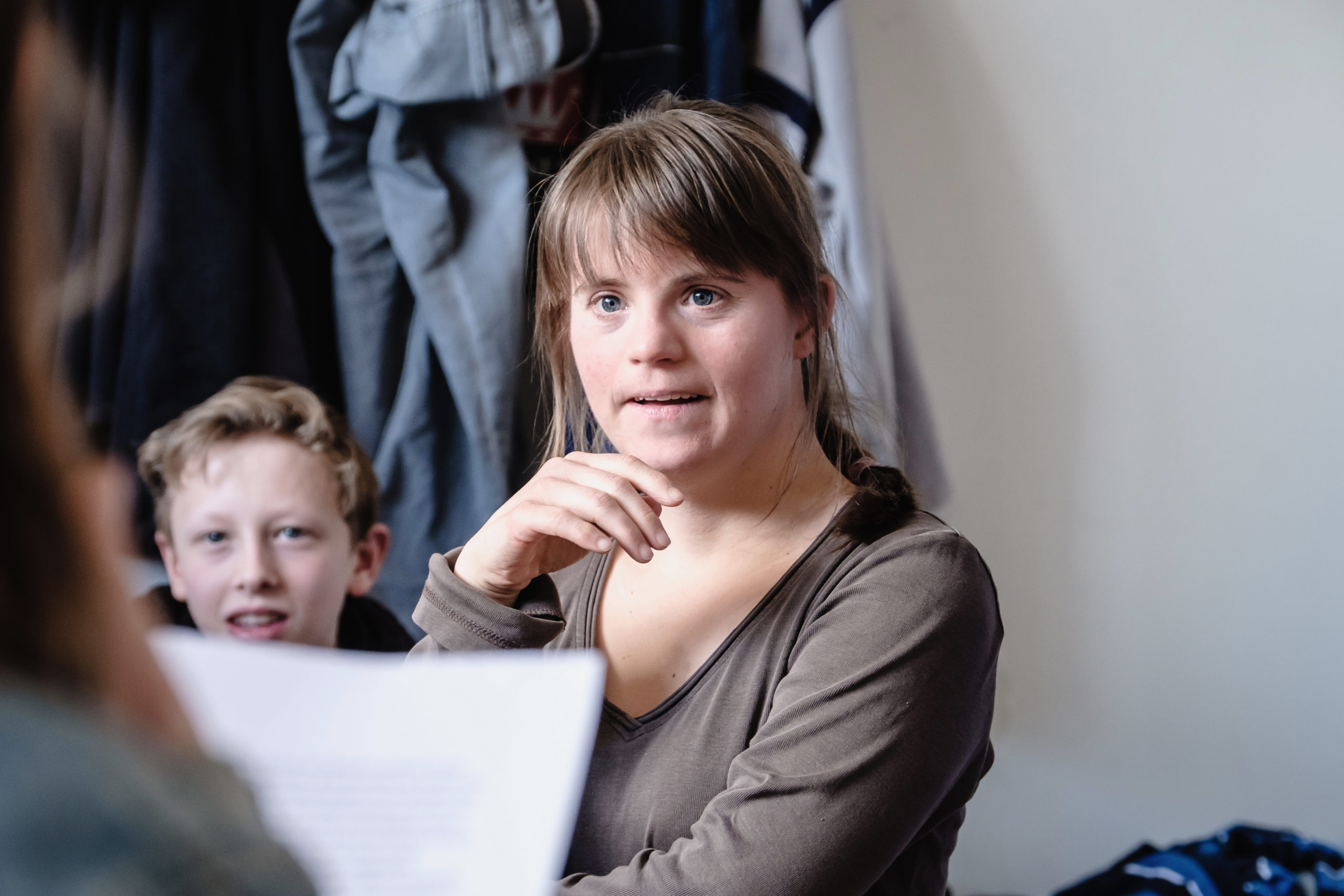 Free choice of job for all
Free choice of job for all
Empowerment courses for self-determined employment
A broad grin spreads across Nils' face: "I just chaired my first team meeting," he says proudly. A few months ago he would never have thought he could do it - not to mention his carers at the workshop for the disabled. He worked there for 10 years, peeling labels off bottles. Today he translates texts into simple language or advises companies that want to employ people with disabilities. "If only the placement officer knew that, who saw only one path for me after school: off to the workshop," says Nils. Because Nils was well advised by an independent project, he made his way from the workshop to the primary labour market. "I have learned more in the few months in my job than in the 10 years in the workshop and I am also much more in touch with people," says Nils.
Necessity
Providing information on alternatives to working in workshops for people with disabilities and encouraging them to pursue a self-determined career
Activity
Workers with and without disabilities from Sozialheld*innen conduct empowerment seminars in workshops for people with disabilities
Countable effort
Number of people with disabilities who have participated in a seminar and subsequently know how to get a regular job in the primary labour market
Result
The proportion of people with disabilities working in a job of their own choosing, which is well paid and subject to social security contributions, has increased
Systemic effect
A larger proportion of the people working in workshops for people with disabilities are informed about alternatives and choose a job themselves. There is more integration into the primary labour market
Background
When people think of workshops for people with disabilities, they usually have a positive image in their minds: a protective place where severely disabled people who cannot pursue regular work have meaningful employment. More than 320,000 disabled people are employed in such workshops in Germany. What many people do not know is that the people employed earn on average only about 1,35 euros per hour (Aguayo-Krauthausen, 2022). This means that despite working up to 35 hours per week, they cannot earn a living and are permanently dependent on social benefits from the state. About 21% of the workers in workshops are people with mental impairments, who are often well-trained and have already worked in the general labour market (Bundesarbeitsgemeinschaft für behinderte Menschen e.V., 2020). Their numbers have been growing steadily for years, even though this group in particular has good chances to enter the general labour market, given the right support (JOBinklusive, 2020). Overall, not even 1% of workshop workers are placed in the primary labour market, even though this is precisely what workshops are supposed to do. This means that moving from a workshop to the general labour market is not easy. Against this background, the JOBInclusive project was launched, which advocates for real inclusion on the labour market and wants to enable people with disabilities to participate in working life on an equal footing.
The good deed
With your good deed, you enable workshop workers to take part in an empowerment seminar. An important feature of these workshops is that they are designed and run by people with disabilities: People who have a disability themselves design and lead the sessions together with people who do not have a disability. Participants are informed about their rights, job alternatives to the workshop and support options to help them obtain employment in the general labour market. In addition, their self-confidence is strengthened so that they discover their own potential and inclinations. It is expected that about 10% of the participants will find their way into the primary labour market. So your good deed contributes to people with disabilities being able to decide for themselves how and where they want to work. You also promote more inclusion in the labour market, which benefits everyone. Because people without disabilities also have the right to work together with people with disabilities.

About Germany
Berlin
Capital
83,129,285
Number of inhabitants
50,801.8
Gross domestic product per capita per year
Rang 9 von 191
Human Development Index
The UN Committee on the Rights of Persons with Disabilities has recommended that Germany gradually abolish workshops for people with disabilities (United Nations, 2015).
About the organization and further information
Association
Sozialhelden e.V.
Website

Further information and source
- Raul Aguayo-Krauthausen, 16.02.2022, Arbeitsbedingungen in Behindertenwerkstätten. Fair ist anders, ZEITonline
- Bundesministerium für Justiz, Werkstättenverordnung (WVO) § 6 Beschäftigungszeit, Berlin
- Bundesarbeitsgemeinschaft Werkstätten für behinderte Menschen e.V., 01.01.2020, Anzahl der wesentlichen Behinderungsarten in den Mitgliedswerkstätten zum 1. Januar 2020*, Frankfurt am Main
- JOBInklusive, 24.09.2020, Wie das System der Behindertenwerkstätten Inklusion verhindert und niemand etwas daran ändert, Berlin
- JOBinklusive, 15.09.21, Das System der Werkstätten für behinderte Menschen: Fünf Schritte in die Zukunft, Berlin




